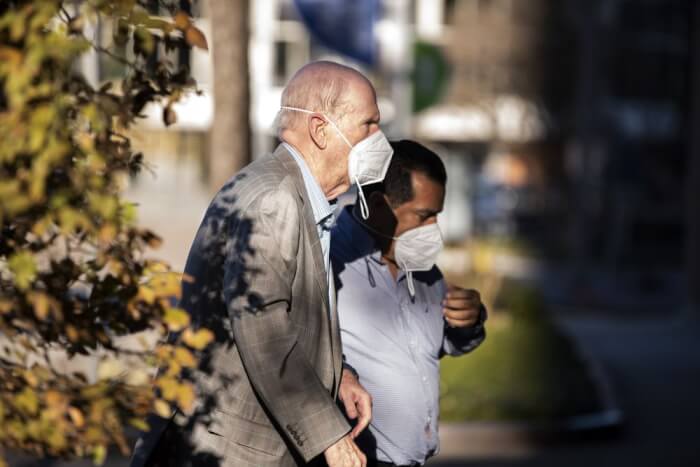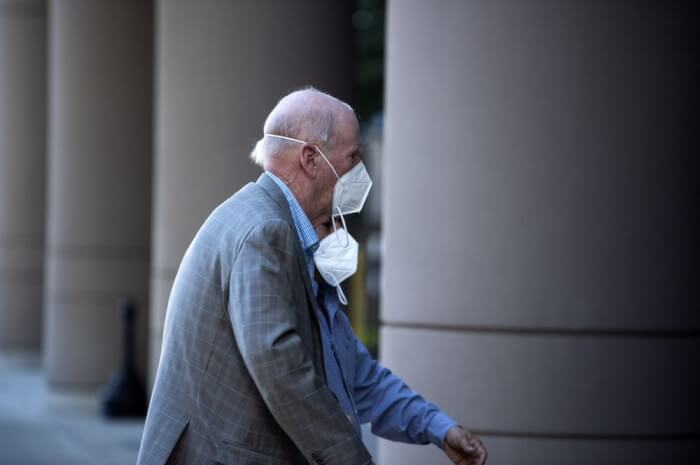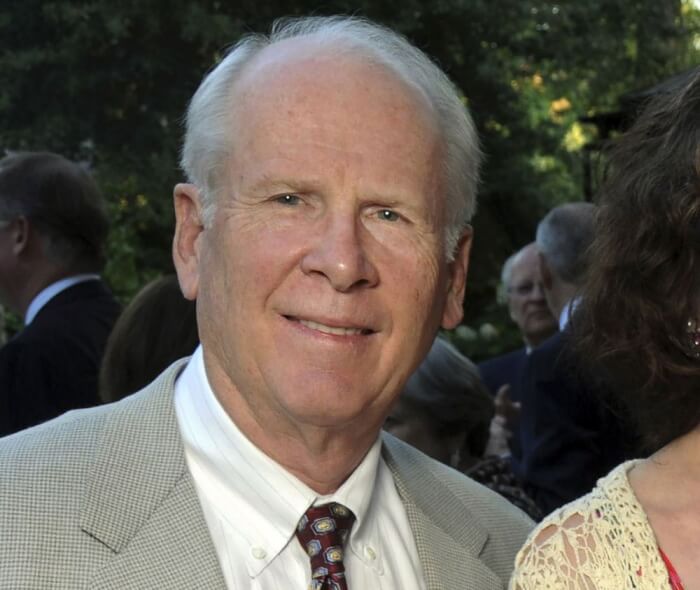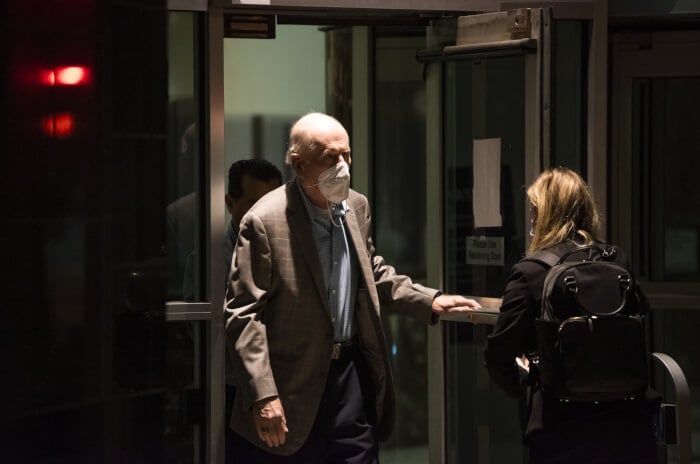How To “Avoid” The Trials Of The $2 Billion Tax Fraud Billionaire: "I Lost My Memory"
Billionaire Robert Brockman explained that memory loss prevented him from appearing in court in the largest personal tax evasion case in US history.
Robert Brockman is a 10-patent holder and creator of one of the world's leading software systems for auto dealers. He also amassed billions of dollars from offshore trusts.
In 2018, federal agents raided the home of Brockman's trust manager in Bermuda, where he was charged with nearly 40 counts including money laundering, financial fraud, and others.
In particular, his biggest crime was tax evasion for 20 years with a total amount of about $2 billion.
According to prosecutors, the billionaire began collecting evidence that he had "dementia" since the charge.
And if this is confirmed, the billionaire could be exempt from court in the largest tax fraud case in US history.
To prove, he made appointments for mental state examination and was diagnosed with dementia by 4 doctors – all affiliated with Baylor College of Medicine in Houston, where he has donated more than $25 million over several years.
There, the court will examine and determine whether he really has amnesia as his lawyers have argued, or if this is just a hoax in the prosecutor's view.
Prosecutors believe that he forged documents about his memory test to hide his overseas assets. Brockman has denied the allegation.
At a hearing in July, prosecutor Christopher Magnani revealed there was a "mountain" of objective evidence that could back up the thesis that the 80-year-old billionaire was just pretending.
By contrast, a report filed by Brockman's attorneys presented images of his recent neurological examination showing he had dementia caused by Parkinson, Alzheimer's or both.
Defense attorneys said: "Mr. Brockman is permanently incurable from dementia. He is incompetent to understand the charges and support his own defense."
Although dementia may have helped Brockman avoid jail time, he still cannot escape civil liability.
The 2020 indictment prompted his resignation from Reynolds & Reynolds, ending his half-century-long career as a software engineer, as well as a brilliant businessman.
His family has donated millions of dollars to scholarship programs, investing in universities and medical research.
Bermuda's documents showed that his foundation has also accumulated an estimated $7.7 billion in assets.
The Justice Department has taken 5 years to resolve, and if the case is dropped, it could raise doubts about its ability to prosecute tax frauds, especially when the Biden administration seeks to strengthen IRS’s performance.
They attached detailed medical reports including an image of Brockman's watch face with numbers rotated in the center of a circle, showing "abnormally altered cognitive function".
One expert said his IQ was only 87, advising him to keep from home appliances and driving.
At the upcoming trial, both sides will rely on testimony and medical records, as well as other evidence, to prove their arguments about Brockman's competence.
Brockman's legal team invited new experts unaffiliated with Baylor College.
One of them, Dr. Marc Agronin, a geriatric psychiatrist at Miami Jewish Health, said: "Mr. Brockman was unable to assist defense attorneys due to limitations in many areas of perception."
Earlier this year, three government-appointed doctors examined Brockman and concluded that he remained competent despite having Parkinson.
However, after two hospitalizations and follow-up visits last month, 2 of them claimed he was still fit to stand trial, while the 3rd couldn’t identify.
He gave two detailed testimony in antitrust lawsuits and planned trips to various places in foreign countries.
Then, in a March 2020 email to his company's chief executive, Brockman was so professional to provide detailed instructions on how to navigate employees and make decisions.
“Decision making in business is one of the most complex things and cannot be done quickly because it relies on so many factors,” Brockman himself said.
"The 'Robert Brockman' presented in these affidavits, hearings, emails and activities stands in stark contrast to the 'Robert Brockman' appearing in the medical reports," prosecutors said.
Mark Lytle, an unaffiliated former federal prosecutor, noted that the judge can hire his own expert if he can’t distinguish the distinction between those representing the government and defense.
If Brockman is declared incompetent, federal law would require him to go to a medical facility for a psychiatric evaluation.
Defense attorneys said his condition was deteriorating and that "no treatment has been able to restore Mr. Brockman's health".
They argued that he should not have been placed in such a facility and that the court was "violating Mr. Brockman's Due Process rights".
H/T: Bloomberg
 Source: Bloomberg
Source: Bloomberg
Robert Brockman is a 10-patent holder and creator of one of the world's leading software systems for auto dealers. He also amassed billions of dollars from offshore trusts.
In 2018, federal agents raided the home of Brockman's trust manager in Bermuda, where he was charged with nearly 40 counts including money laundering, financial fraud, and others.
In particular, his biggest crime was tax evasion for 20 years with a total amount of about $2 billion.
According to prosecutors, the billionaire began collecting evidence that he had "dementia" since the charge.
And if this is confirmed, the billionaire could be exempt from court in the largest tax fraud case in US history.
To prove, he made appointments for mental state examination and was diagnosed with dementia by 4 doctors – all affiliated with Baylor College of Medicine in Houston, where he has donated more than $25 million over several years.
The court is suspicious
 Source: Bloomberg
Source: Bloomberg
There, the court will examine and determine whether he really has amnesia as his lawyers have argued, or if this is just a hoax in the prosecutor's view.
Prosecutors believe that he forged documents about his memory test to hide his overseas assets. Brockman has denied the allegation.
At a hearing in July, prosecutor Christopher Magnani revealed there was a "mountain" of objective evidence that could back up the thesis that the 80-year-old billionaire was just pretending.
By contrast, a report filed by Brockman's attorneys presented images of his recent neurological examination showing he had dementia caused by Parkinson, Alzheimer's or both.
Defense attorneys said: "Mr. Brockman is permanently incurable from dementia. He is incompetent to understand the charges and support his own defense."
Although dementia may have helped Brockman avoid jail time, he still cannot escape civil liability.
The 2020 indictment prompted his resignation from Reynolds & Reynolds, ending his half-century-long career as a software engineer, as well as a brilliant businessman.
His family has donated millions of dollars to scholarship programs, investing in universities and medical research.
Bermuda's documents showed that his foundation has also accumulated an estimated $7.7 billion in assets.
The Justice Department has taken 5 years to resolve, and if the case is dropped, it could raise doubts about its ability to prosecute tax frauds, especially when the Biden administration seeks to strengthen IRS’s performance.
Did the billionaire really lose his memory?
 Source: Bloomberg
Source: Bloomberg
They attached detailed medical reports including an image of Brockman's watch face with numbers rotated in the center of a circle, showing "abnormally altered cognitive function".
One expert said his IQ was only 87, advising him to keep from home appliances and driving.
At the upcoming trial, both sides will rely on testimony and medical records, as well as other evidence, to prove their arguments about Brockman's competence.
Brockman's legal team invited new experts unaffiliated with Baylor College.
One of them, Dr. Marc Agronin, a geriatric psychiatrist at Miami Jewish Health, said: "Mr. Brockman was unable to assist defense attorneys due to limitations in many areas of perception."
Earlier this year, three government-appointed doctors examined Brockman and concluded that he remained competent despite having Parkinson.
However, after two hospitalizations and follow-up visits last month, 2 of them claimed he was still fit to stand trial, while the 3rd couldn’t identify.
The evidence against the billionaire
 Source: Bloomberg
Source: Bloomberg
He gave two detailed testimony in antitrust lawsuits and planned trips to various places in foreign countries.
Then, in a March 2020 email to his company's chief executive, Brockman was so professional to provide detailed instructions on how to navigate employees and make decisions.
“Decision making in business is one of the most complex things and cannot be done quickly because it relies on so many factors,” Brockman himself said.
"The 'Robert Brockman' presented in these affidavits, hearings, emails and activities stands in stark contrast to the 'Robert Brockman' appearing in the medical reports," prosecutors said.
Mark Lytle, an unaffiliated former federal prosecutor, noted that the judge can hire his own expert if he can’t distinguish the distinction between those representing the government and defense.
If Brockman is declared incompetent, federal law would require him to go to a medical facility for a psychiatric evaluation.
Defense attorneys said his condition was deteriorating and that "no treatment has been able to restore Mr. Brockman's health".
They argued that he should not have been placed in such a facility and that the court was "violating Mr. Brockman's Due Process rights".
H/T: Bloomberg
Share this article
Advertisement